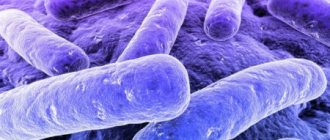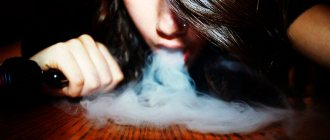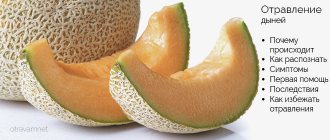Honey dripping from a spoon
Due to their healing properties, beekeeping products are used to treat colds. Under certain conditions, honey has a negative effect on the body. Let's consider whether it is possible to be poisoned by honey, the conditions under which the composition deteriorates, symptoms indicating poisoning, and we will find out the procedure for intoxication.
Causes of honey poisoning
A product that can cause poisoning is called drunk. For example, it is quite possible to get poisoned if you eat up to 100 ml of a treat that was created by bees from the nectar of the following plants (they are considered poisonous):
- wild rosemary;
- heather;
- dope;
- wolf's bast;
- aconite;
- rhododendron;
- periwinkle, etc.
In this situation, poisoning occurs due to the fact that andromedotoxin enters the body. This substance has a negative effect on brain activity. The symptoms in this case are very similar to the signs of alcohol intoxication. “Drunken” honey does not differ in appearance from benign honey, but has an aroma reminiscent of burnt sugar.
Other causes of poisoning:
- No pasteurization. If the manufacturer does not pasteurize the product, the result is simply a watery syrup that contains no useful substances. This syrup is called “raw” honey. It may contain pathogenic bacteria that cause intoxication; may provoke an allergic reaction.
- Production too fast. If honey is collected too early, even before the bees have sealed the honeycombs, then the shelf life of such a product is very short. Unripe honey quickly undergoes separation, when a clear line can be observed between the two layers - liquid and dense. The taste of the product becomes sour and the smell becomes unpleasant. Eating such a “delicacy” can cause stomach upset.
- The location of the apiary in an environmentally unfavorable area. The vicinity of highways, industrial complexes, railways, military training grounds - all these are unacceptable places for installing apiaries. Honey from nectar collected by bees in such places may well have toxic properties.
- Excessive use. An overdose of honey can also cause poisoning, so experts do not recommend eating more than 100 grams of this product at a time, despite all its usefulness. It is noteworthy that intoxication can develop in young children even when eating a smaller amount of honey, so this delicacy should be given to a child with caution.
- Expiration date. Many people are interested in the question of whether it is possible to eat old honey. It is undesirable to do this due to the fact that according to GOST there are clear deadlines during which the products can be consumed - no more than 8-12 months. If it was packaged in special sealed packages, the beekeeping product can be stored for about two years (if the container is closed). Is it possible to get poisoned by old honey? Yes, but this happens extremely rarely.
- Incorrect storage. Due to the fact that the product is stored in containers made of metal or plastic, an oxidation process occurs. As a result, toxic compounds begin to actively form, and they can provoke the appearance of intoxication. To avoid this, it is advisable to store the product in ceramic or glass containers. It is strictly not recommended to use old honey that has been in copper, galvanized or plastic containers for a long time. You should stop using such products.
- Frequent heating. In order to give old, candied honey a marketable appearance, it is subjected to heat treatment. If you do this several times, reaching temperatures above 60 degrees, a harmful substance called hydroxymethylfurfural can be produced. This is a carcinogenic substance, which also negatively affects the activity of the central nervous system. This product can cause poisoning.
If you are wondering how you can use old honey, know that experts recommend using this product for baking or for cosmetic recipes.
How not to get poisoned by honey
Individuals who purchase honey from farmers who have multiple hives are at increased risk. Combining large amounts of honey during industrial processing generally dilutes any toxic substance.
Honey should be used with caution:
- if its origin is unknown;
- for diseases of the stomach or intestines;
- children under 12 months of age;
- for allergies to pollen
- during pregnancy and lactation
There is a lack of scientific evidence on the use of honey during pregnancy. But it is best to limit its consumption as this product may contain impurities that are harmful to pregnant or unborn or breast-fed children.
Symptoms of honey poisoning
You can tell that a person has been poisoned by honey by the following signs:
- pupils dilate;
- body temperature rises;
- the skin becomes red, the patient may sweat heavily;
- nausea and vomiting occur;
- dizziness, muscle weakness appears, joints ache unpleasantly;
- There is a severe headache, a feeling of pressure on the skull from the inside. If you are worried about headaches after poisoning, read here.
An overdose usually occurs if a person consumes more than 150 grams of honey at once. In such situations, one can even note confusion and loss of coordination in space.
Note! For an adult, the lethal dose of honey is 800 g, for a child – 150 g.
If the first symptoms of intoxication appear, you need to seek specialized help as soon as possible. Only a doctor can correctly establish a diagnosis and prescribe therapy.
Consequences
The severity of poisoning from the “drunk” gift of honey bees is proportional to the volume of the portion eaten: if a small dose (up to 100 grams) is consumed, the person’s condition quickly returns to normal, but if a large amount of poisonous sweetness is eaten, improvement will have to wait much longer. A lover of sweets may suffer from poor health, dizziness, and weakness for a long time. In the worst case, pancreatitis may develop, affecting the pancreas.
Pancreas in the human body
Allergy to honey
Not only overeating can provoke severe intoxication. If a person has an allergic reaction to the product, a couple of teaspoons are enough for the following symptoms to appear:
- runny nose;
- severe skin itching;
- headache (a headache from honey is a sign of an allergy).
Advice! To eliminate unpleasant symptoms, you need to give the allergy sufferer an antihistamine, and then seek help from a specialist. This should be done as quickly as possible so that the general condition does not deteriorate even further.
How not to buy bad honey
When buying honey on the market or from individuals, ask about the documents for it. This product must have a passport indicating the place of collection and date. The seller must also have a conclusion from a laboratory of veterinary and sanitary examination of the market and veterinary certificates. The best option is to buy from trusted sellers.
Lyubimtseva S. I.
Infectious disease doctor, private clinic “Medcenterservice”, Moscow. Senior editor of the website "Poisoning Stop".
Help with honey poisoning
First aid consists of doing the following:
- rinse the victim’s stomach with soda or saline solution (a tablespoon of soda or salt per liter of water);
- give a laxative;
- take adsorbents (for example, activated carbon - 1 tablet/10 kg of weight, Smecta, Enterosgel, etc.).
If honey causes an allergy, it is necessary to give the patient an antihistamine: Diazolin, Suprastin, Claritin, Zodak, Erius, etc. Drinking plenty of fluids is useful in this situation. You can drink clean water, still mineral water, sweet tea.
You should definitely call an ambulance if:
- an elderly person, a small child, a woman during pregnancy were poisoned with honey;
- severe weakness is felt, poisoning is accompanied by diarrhea (diarrhea more than 10 times a day);
- vomiting does not stop.
It is also important to consult a doctor if warning symptoms appear after consuming honey:
- blood in stool;
- blood in the urine;
- sluggish speech, blurred vision;
- hyperthermia;
- hearing problems;
- numbness of the limbs, loss of consciousness;
- dry mouth.
In stationary conditions, the patient undergoes gastric lavage; for the purpose of detoxification, glucose-saline solutions are administered intravenously. If an allergic reaction develops, injections of antihistamines are used.
About the benefits
Honey contains sugars, ascorbic acid, vitamins B, PP, E, various organic acids, important macro- and microelements (Ca, K, Mg, Cu, Fe, P, Na, Zn, Cr and so on), therefore the spectrum of its effect on the body is very wide. Honey will strengthen the body's immune response to the invasion of viruses and bacteria, fill the body with energy, and restore strength.
The product will improve metabolism and has a pronounced antibacterial effect. Honey will calm you down and help solve problems with falling asleep when you take a spoon at night.
The sweet product normalizes blood counts and slows down the aging process. Honey is indicated for diseases of the heart and blood vessels. It helps with inflammatory processes in the respiratory system, problems in the digestive system, and also kills fungus and promotes the rapid healing of wounds on the skin.
The beneficial properties of honey depend on its type, here are some examples:
• Linden. One of the most useful. Effectively reduces temperature, helps remove mucus from the respiratory system more easily, and helps with the functioning of the liver and gallbladder.
• Buckwheat. This type of honey is very aromatic; in the second half of autumn it is already candied. It best restores the body in case of anemia, and also strengthens blood vessels, replenishes the lack of vitamins, helps with high blood pressure and inflammation of the mucous membrane of the stomach walls.
• Acacia. Doctors recommend it to diabetic patients. It practically does not cause allergies, so it can be included in children’s diets. It puts the nervous system in order and helps with problems falling asleep. Used to treat inflammatory processes on the skin and mucous membranes of the eyes. Normalizes kidney function.
• Sunflower. Helps with heart diseases, helps with stool disorders.
• Sweet clover. Effective for migraines, stabilizes the functioning of the thyroid gland.
• Motherwort. Its main property is to calm down after suffering stress and relax the nervous system at the end of the working day.
Dark types of honey (clover, buckwheat, sage) have more antioxidants and benefits for blood vessels, which is to cleanse them of excess cholesterol and prevent atherosclerosis. Regular and moderate consumption of honey helps in weight loss. The product contains phenolic resins that stop oxidative processes. Due to its ability to deal with pathogenic bacteria, honey can help with bad breath.
Prevention of intoxication
Choose and eat honey according to the following recommendations:
- You can’t warm up the treat;
- there is no need to buy honey from your own hands - there is a high probability that they will sell low-quality goods that can easily be poisoned;
- no need to eat a lot of treats at one time;
- If you have allergic reactions to any foods, you should not try honey. The allergenicity of this beekeeping product is very high.
Even though honey is incredibly healthy, it is worth remembering that if you eat a low-quality product, you can get poisoned and harm your health.
How much is a lot?
When honey is diluted in tea, milk or warm water, it is more easily absorbed by the body, so it is not recommended to give it to children in its pure form.
Since each person is individual, the portion of a sweet product for him is also determined individually. Athletes and people involved in physical labor are allowed to eat more honey, but provided that their body reacts to it normally. If your job involves sitting at a computer or you lead a sedentary lifestyle, limit your consumption of bee waste products.
When answering the question whether you can eat a lot of honey, it is worth noting that the amount of this product must be limited in order to get maximum benefits. It is consumed in its pure form or added to drinks (tea, milk, compotes), desserts, baked goods, and so on. Excessive consumption of this product leads to health problems. To ensure that honey brings you only benefits, listen to your body and do not overuse honey if you notice negative reactions (allergies, stomach pain, extra pounds, and so on).
Preventive actions
Unfortunately, it is impossible to visually distinguish good honey from bad honey.
In order to prevent poisoning from honey products or at least significantly reduce the likelihood of it, it is highly advisable to:
- purchase the product only from familiar, reputable sellers;
- when buying this product in a store, carefully inspect the container for swelling and integrity, check the production and expiration dates;
- do not give honey to children under 1 year of age, in any form or in any proportions;
- limit consumption, especially in childhood;
- store this product in a dark, cool and dry place where ultraviolet radiation does not penetrate;
- use only the “correct” containers for storage;
- do not overdo home self-medication;
- do not heat the candied product repeatedly;
- If you notice a strange taste or smell in honey, do not experiment and stop using it altogether.
Well, when engaging in beekeeping and honey production yourself, you need to strictly observe all the rules and follow the established recommendations.











